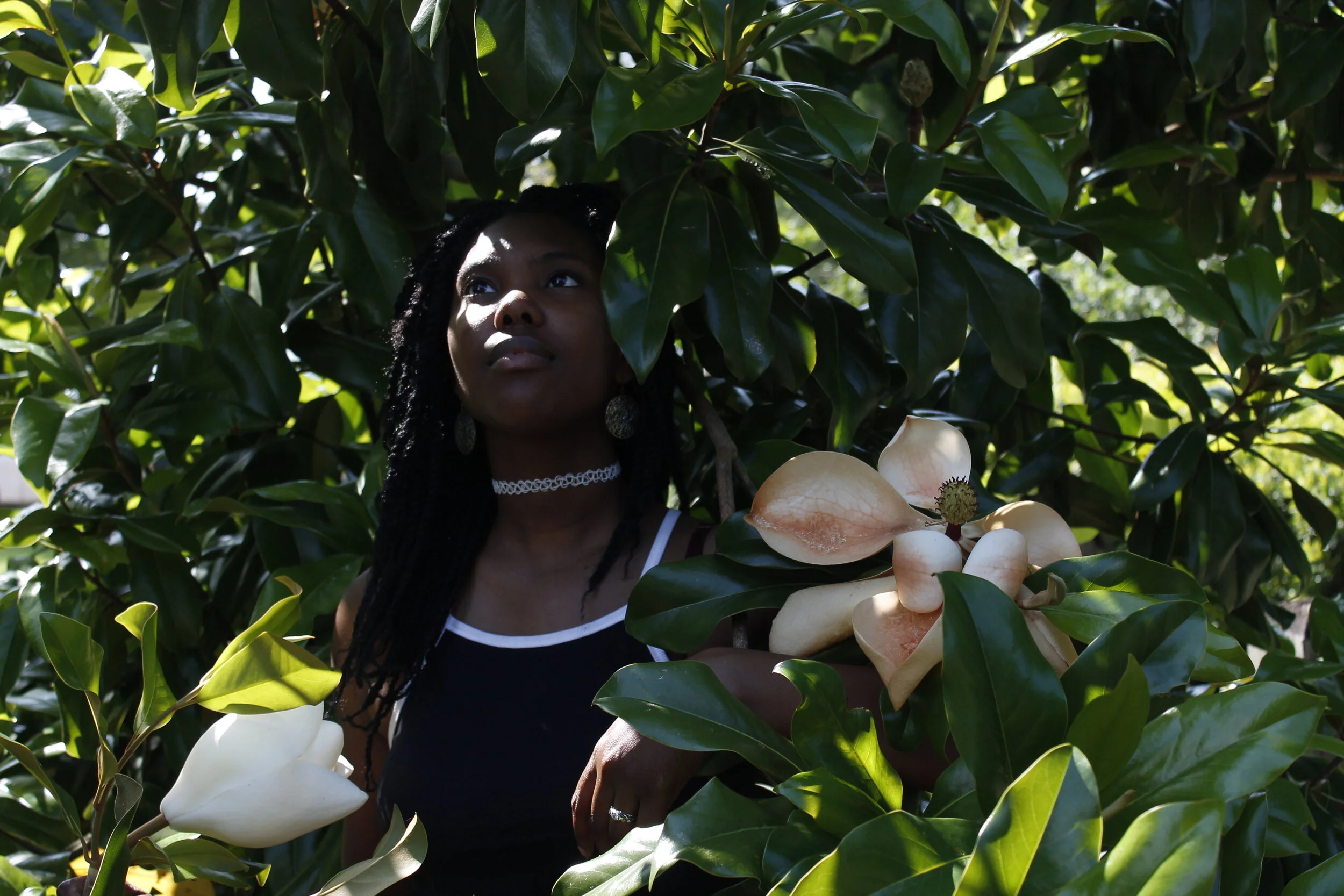Amplified
I remember the first time I felt seen in the world. Laid bare all vulnerable like. It was in my junior year of college at Race Talks. I heard Ryan Ford speaking about racism in the back room of the Wesley Foundation, and I remember thinking, “No one else is talking about this.” This thing. This huge elephant that’s been sucking all the air out of the room had been going unnoticed in almost every area of my life, and here the Wesley Foundation was just talking about it. Candidly. Later, I would come to realize that those moments and those conversations created the heart of the Wesley Foundation at Louisiana Tech University. For the first time, I would come to understand what it meant to be “peculiarly Christian.”
A couple of Fridays ago, our director, Ryan Ford, told me that I had a valuable voice. That he hoped whatever job I ended up doing after the internship, I would continue to use my voice. He said those things...to me. And I cried. This encouraged me to understand quite a few things. My experience and my perspective are valued. In case you’re wondering, there are not many people in the world telling young black women that their voice is needed. Since then, I’ve felt even more emboldened to speak God’s Truth.
I have come also to understand an interesting kind of anger that resides within me. I think that I can’t be angry. I can say that I’m angry, and people will nod their understanding, but I don’t believe that I can feel angry. I can’t look angry. I can’t speak angrily. And something about that is suffocating. It’s a heavy kind of anger that sits on my chest and burns my nostrils. The kind that makes you feel like you’ll explode if you don’t get it out. I have worried many times about how to say the things I believe Jesus has put on my heart.
I’m scared the world won’t hear me if I’m angry. Maybe I’m scared that certain Christians won’t hear me, either. Are you listening to me?
Was Jesus angry like this? He knew people wouldn’t listen, that they’d keep on sinning, but He spoke anyway.
I’ve found myself in various conversations with friends wondering what the world will be like when the virus dies down and the protesting is over. Will anything change? So many people want things to go “back to normal.” However, normal was wrong. Normal was injustice and no peace. Normal was violence and corruption swept under the rug. Christians should not desire normal. This is our time to imagine a new reality that more vividly reflects the world Jesus envisions for us. When we pray to our Heavenly Father, we boldly pray, “Your kingdom come, Your will be done, on Earth as it is in Heaven.”
My hope is that Christians everywhere will begin to speak, think, and act peculiarly. My hope is that we will truly learn to be distinguishable from the world. This kind of peculiar Christianity does not happen overnight, and I believe that in light of current events, there is indeed something that we can do to achieve this.
It comes from the blind willing to trust those who can see. The deaf trusting those who can hear. If you can’t see the oppression, and if you can’t hear the injustice, then you are blind and you are deaf and need to be led. If you do not recognize the nuanced ways that this country has created structures and institutions that are meant to enslave black people emotionally, mentally, socially, and physically, then you are blind and deaf and need to be led. Perhaps the light is overcoming the darkness and some of us cannot comprehend it.
Perhaps that is difficult to hear. It is also difficult to say, but the disciples risked their comfort, and I must do the same. In fact, the disciples risked their comfort, their livelihood, relationships with their families, and, most importantly, their lives for the sake of spreading the Good News. Are any of those things at risk for us as we attempt to do the same thing?
My call to action is this: Let us take responsibility for ourselves. Let the Church take responsibility for the Church and all of its members. If we have not called out sin, specifically the sin of racism, the sin of partiality, in the Body, we have not done our job as a sibling to our brothers and sisters. We do not get to excuse ourselves from being invested in the salvation of our siblings and the sanctification of the Body of Christ.
I wasn’t bold then, in my junior year of college, but I am now, and when I was unsure and quiet, there were people who were patient with me, waiting. But there were also people dying, waiting for the Church to be the Church. So, while the Church remains silent, complacent, in denial, and ignorant, people are dying waiting for us to see. Waiting for us to hear.
I know the role I must play in the Body of Christ during this time. This is me using my valuable voice. I truly believe in the Church that Jesus will come back for, and I want to dedicate my life to being a vessel for His will here on Earth.
Khalilah is a second year intern at the Wesley Foundation. She graduated from Louisiana Tech University in Graphic Design with a minor in English. She is wise and gracious and a trusted member of our community. Her hobbies include all things art: writing, drawing, photography, designing, etc.
